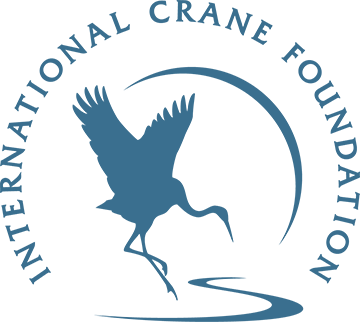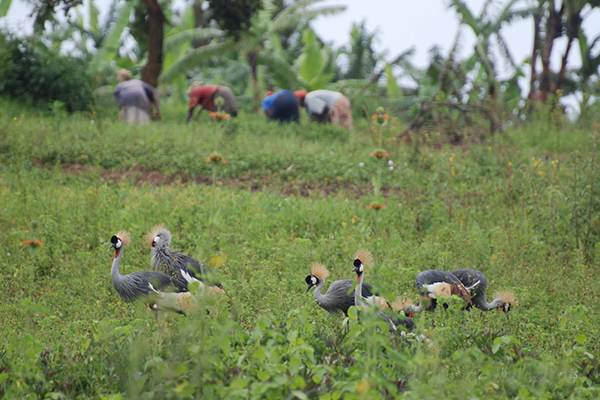
International Crane Foundation and Endangered Wildlife Trust Celebrate 30-Year Collaboration and Impact at National Crane Festival
Contact: Jodi Legge, Director of External Affairs, 608-356-9462, ext. 120
Feb. 28, 2024 (Uganda, Africa) – Before the latrine was built at the Kabirizi Primary School in the Rukiga District of Uganda, many girls dropped out by age 12, got married, and started having children – sometimes 10 or 12 in their lifetimes. Lack of clean, private, and safe sanitation facilities is a major factor for girls in rural areas not completing their education, resulting in increased rates of child marriage, teenage pregnancy, poverty, and larger family size.
When the International Crane Foundation (ICF) and Endangered Wildlife Trust (EWT) recognized the growing local population and not enough farmland to feed them contributed to Uganda’s wetlands being destroyed, the two organizations decided to take an innovative approach to protect these important habitats and save cranes, while supporting Uganda communities.
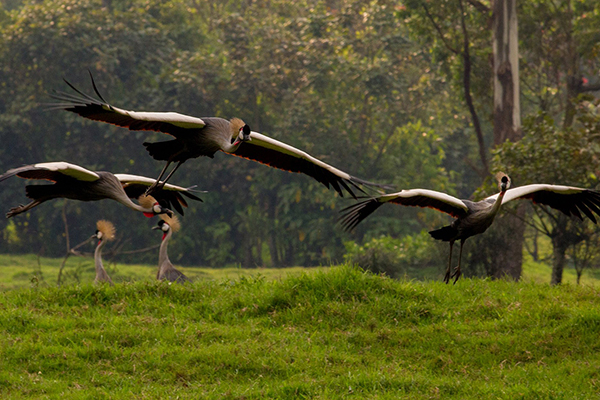
In Uganda, the Endangered Grey Crowned Crane population has declined by more than 80% in the last 25 years, primarily due to habitat loss, human disturbance, and illegal trade. Poor healthcare services have led to families having more children than they would have chosen had high-quality family planning information and services been available. In Rukiga, they were running out of agricultural land to grow enough crops, which led farmers to start planting in the wetlands. This human activity, combined with erosion and wetland sedimentation, was not only destroying habitats for cranes but also damaging the wetlands for people.
Saving Uganda’s national bird first brought ICF and EWT to work in the region more than 30 years ago. However, it was in 2020 when the innovative idea to combine conservation initiatives with health and rights-based voluntary family planning solutions became a reality.
ICF and EWT partnered with the Margaret Pyke Trust, Rugarama Hospital, and the London School of Hygiene & Tropical Medicine to implement an innovative integrated conservation, livelihood, and human health project (known as a population, health and environment project) in Uganda. The project has been funded by the United Kingdom Government through The Darwin Initiative for the last three years and in 2023 secured three additional years of funding to further expand and embed the project across the entire wetland.
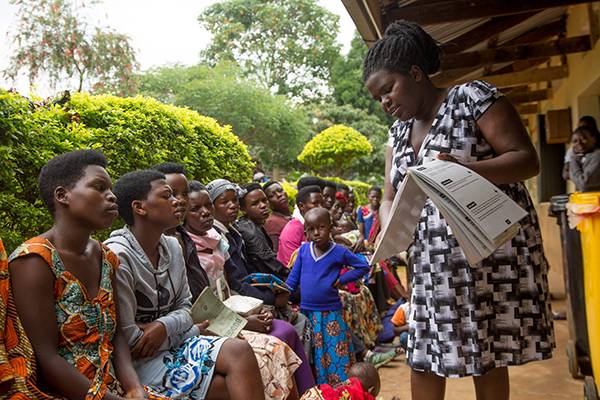
The partnership collectively supports communities by providing climate-smart agriculture training and other conservation programs, healthcare training and service provision, including rights-based voluntary family planning services, community impact research and education programs to provide a holistic approach. Communities sign Conservation and Health Agreements detailing conservation and health action to be undertaken in exchange for training and livelihood support, including training in backyard gardening, composting, organic farming, and farming as a business. High-quality seeds for climbing beans and Irish potatoes, the staple food in Rukiga, are also provided. The training programs helped communities set up livelihoods – including integrated cooperatives to get the best prices for their crops. By selling as a community versus an individual farmer, it allowed them to sell at a higher price.
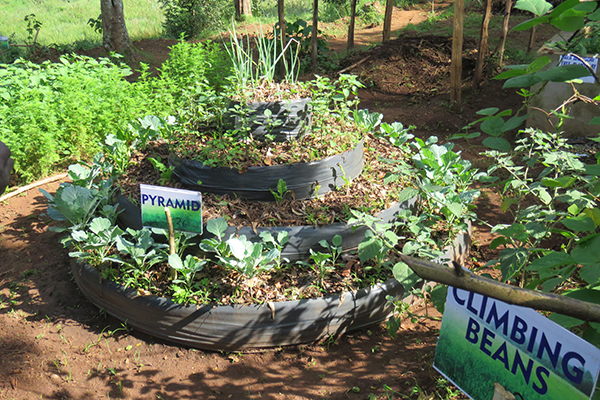
A latrine for the girls helps them stay in school, increasing the likelihood they can graduate and decreasing the risk of early marriage and the many negative and lifelong impacts associated with that outcome.
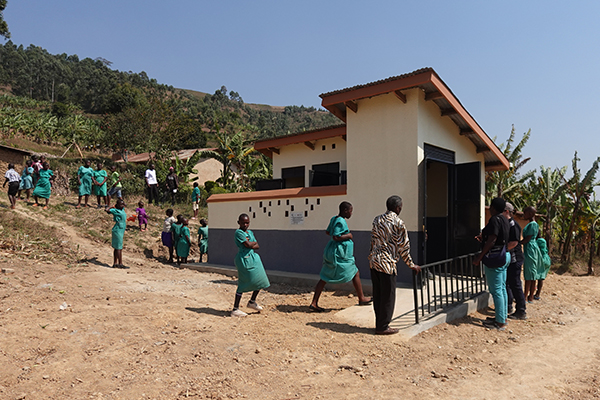
Early results show better health and gender outcomes, additional livelihoods, and higher growth in crane numbers at the Rukiga project sites compared to other sites in Uganda. The additional funding allowed the partners to add even more sites in 2024. The integrated partnership hopes to share further results and serve as a model program for conservation.
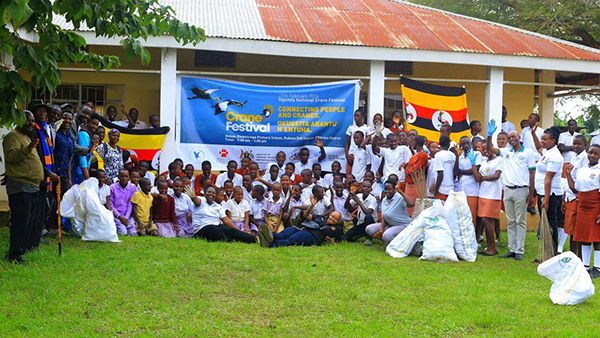
This week, ICF and EWT celebrated the impact of these programs and highlighted the importance of crane conservation during the fourth annual National Crane Festival, held at Rwantsinga Primary School in the Mbarara District of Uganda. The Festival was a lead-up to Uganda’s World Wildlife Day celebrations on March 3rd and reinforced the organization’s commitment to communities, conservation, and cranes.
The celebrations featured diverse activities, bringing together stakeholders from various sectors — schools, local communities, policymakers, and the private sector. Key partners at the event included the Ministry of Tourism, Wildlife and Antiquities, National Environment Management Authority (NEMA), Mbarara District Local Government, Uganda Biodiversity Trust Fund (UBF), Rugarama Hospital, Conservation Through Public Health (CTPH), Uganda Wildlife Education Centre (UWEC), and Uganda Wildlife Authority (UWA).
“By securing the wetlands where these birds nest, breed, and feed, we can improve the prospects of these cranes and ensure they have a viable future,” said Patrick Engoru, Uganda Country Manager for ICF/EWT. “We realize it is these innovative, community approaches that make the difference and impact people as much as they impact cranes.”
“We always put community first,” said Dr. Adalbert Aine-omucunguzi, East Africa Regional Manager for ICF/EWT. “Patrick and the ICF team had already developed strong relationships with communities where the Grey Crowned Crane was most at risk, so local farmers welcomed the climate-smart agriculture training.”
“The wetlands of Uganda are rich in biodiversity and are important for both people and animals, and everyone we talked to wanted to conserve this important area,” said Aine-omucunguzi. “As we talked to people, we better understood the challenges of having large families, which diminished the available farmland over time as parents subdivided land for their children’s inheritance. This only made it harder to feed everyone. Additionally, soil erosion, tree felling and a lack of anti-erosion measures further reduced soil quality and crop yields.”
“If we all work together, with buy-in from the community, we can make a difference,” said Engoru.
